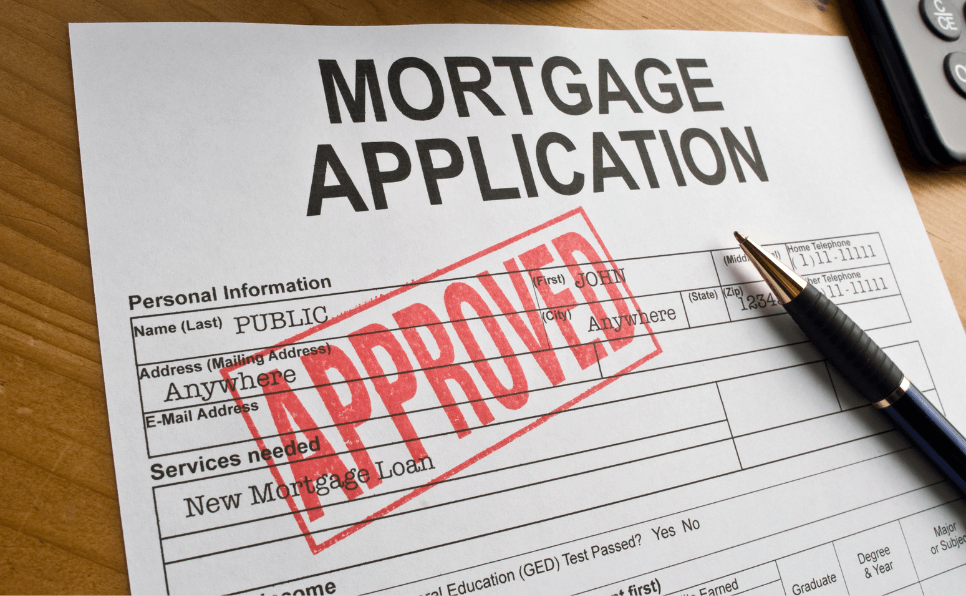Applying for a mortgage as a single homebuyer can feel a bit daunting. It’s a big commitment, but it’s also an exciting step toward owning a space that’s all yours. If you’re feeling overwhelmed by terms like “LTV” (Loan-to-Value) or you’re unsure whether a fixed or variable rate is right for you, don’t worry – we’ve got you covered.
Let’s break down the mortgage application process so you’re empowered to make confident decisions about your home loan and future.
What is a mortgage, and why is it OK to have one as a single homebuyer?
A mortgage is simply a loan you take out to buy a property. While the idea of being in debt might sound scary, mortgages are considered “good debt.” Here’s why:
- Property prices tend to rise over time:While no one can predict the future, UK property values generally increase in the long-term. This means your home could grow in value even as you repay your mortgage.
- Debt erosion: Inflation effectively reduces the “real” value of your mortgage debt over time, making it less of a burden.
So, rather than fearing a mortgage, think of it as a tool to invest in your future. Owning a home is a major milestone, and single homebuyers can make their dreams a reality too with the right mortgage.
Types of interest rates and fees for single homebuyers
Understanding mortgage interest rates is key to choosing the right home loan. Here’s a breakdown of the most common options:
Fixed-rate mortgages
A fixed-rate mortgage keeps the interest rate the same for a set period, usually two, five or 10 years. This makes it easier to budget since you’ll know exactly what your monthly payments are during this time.
Variable-Rate Mortgages
The interest rate can go up or down depending on the lender’s base rate or the Bank of England’s base rate. These include:
- Tracker mortgages: Follow the Bank of England’s base rate, plus a set percentage.
- Standard Variable Rate (SVR): Set by the lender and can change at their discretion. Often higher than tracker rates.
Mortgage Fees
You may encounter:
- Arrangement fees: Typically £995-£2,000, charged by the lender to set up the mortgage.
- Early Repayment Charges (ERCs): If you pay off your mortgage early, you might be penalised.
- Valuation fees: Paid to check the property’s value.
Download our handy budgeting template here for guidance on all the costs
Understanding Loan-to-Value (LTV) for single homebuyers
Loan-to-Value (LTV) is the percentage of the property price you borrow compared to your deposit. For example, if you’re buying a £200,000 property with a £20,000 deposit, your LTV is 90%.
While it’s tempting to pour all your savings into a larger deposit, it’s often smarter to maximise your LTV and keep some cash in reserve for renovations or unexpected costs. A 90% LTV mortgage might cost slightly more each month than an 85% one, but having extra funds on hand can make all the difference once you move in.
The paperwork you’ll need to apply for a mortgage as a single homebuyer
Before you apply apply for a mortgage, gather the following documents:
- Proof of ID: Passport or driving licence.
- Proof of address: Recent utility bills or council tax statements.
- Proof of income: Payslips for the last three months or your latest P60.
- Bank statements: Typically for the last three months.
- Credit report: Some lenders may check this directly, but it’s helpful to review it yourself.
- Proof of deposit: Bank statements or evidence of gifts (if applicable).
If you’re self-employed, check out our guide to getting a mortgage if you’re self-employed.
What can you do if you’re worried about affording mortgage payments?
It’s natural to feel nervous about the financial commitment. Here’s what to do if you’re concerned:
- Talk to your lender: Many lenders offer flexibility, such as payment holidays, if you face temporary difficulties. But be aware of the impact on your credit rating, and that you could pay more in the long-term.
- Build an emergency fund: Aim to save at least three-six months’ worth of mortgage payments.
- Choose a manageable rate: Opt for a fixed rate to ensure predictable payments for a set period.
- Seek advice: Your mortgage broker can guide you through affordable options.
Mortgage Terms: Length, fixes, and rolling rates
- Term length: Most mortgages are 25 years, but shorter or longer terms are available. A longer term lowers monthly payments but increases total interest paid.
- Fixed rates: Fixing your rate for two, five, or 10 years provides security, but remember to remortgage at the end of the period to avoid rolling onto the lender’s SVR (often much higher). It is rarely recommended to take a 10 year fix – we’re not financial advisers here so feel free to consult one for your own personal circumstances, but usually a five-year fix or a two- year fix are what people opt for.
- Arrangement fees: Each time you remortgage, you may pay a fee, but staying on top of your rate ensures long-term savings.
If you are considering a 10-year fix, you really need to be absolutely certain about your future plans, as rates and personal circumstances often change.
How are mortgage rates set for single homebuyers?
Mortgage rates are influenced by several factors:
- The Bank of England Base Rate: Lenders use this as a benchmark.
- Your LTV: Higher LTV mortgages usually come with higher rates.
- Your credit profile: A strong credit history helps you secure better deals.
- The EPC of a property: More recently, some lenders offer lower rates if you are buying a property with a very good EPC (usually C and above).
Keeping an eye on market trends and working with a broker ensures you get competitive rates.
Download my curated list of power team contacts, including my trusted mortgage broker, to make your journey smoother. Click here to access the list.





